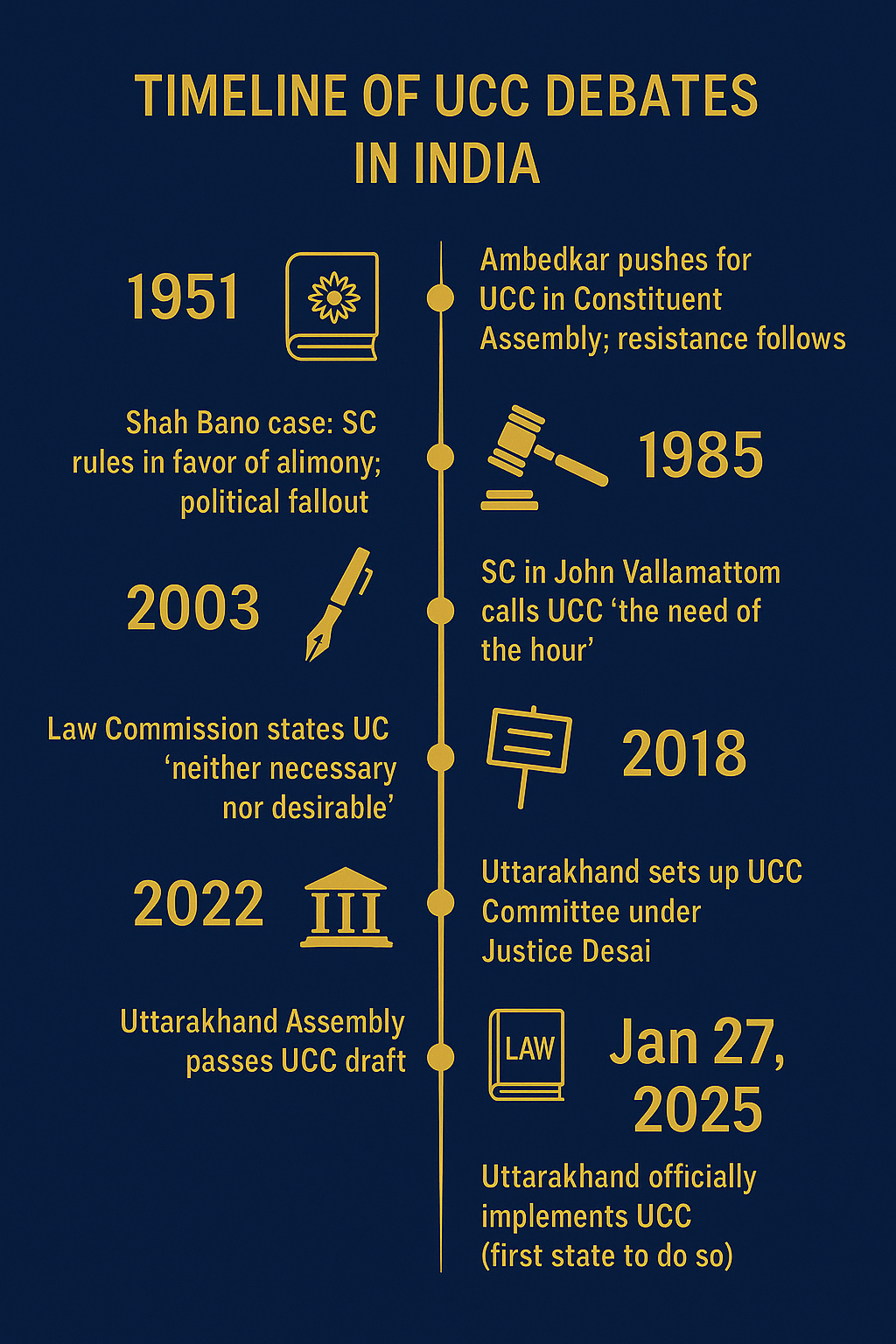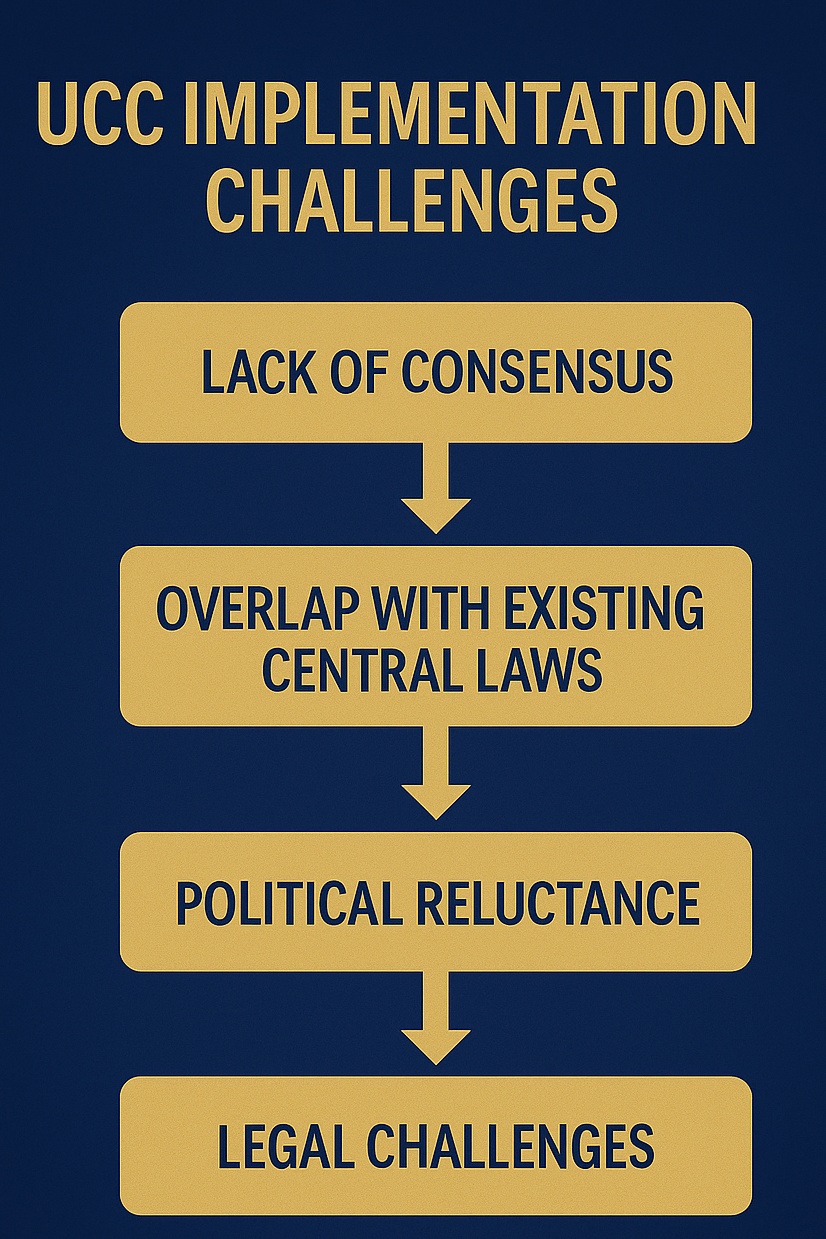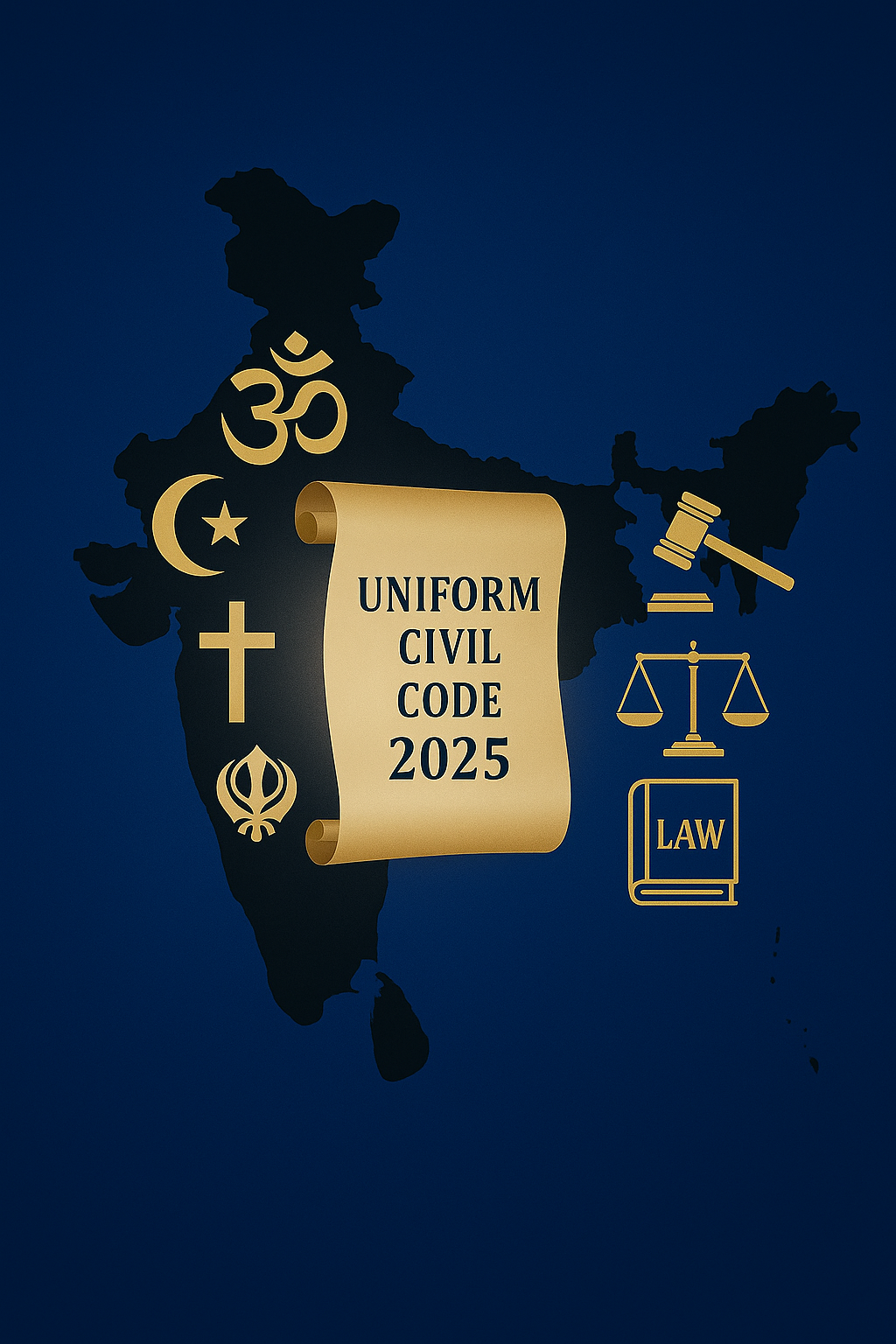Introduction
Uniform Civil Code 2025 has reignited one of the most polarizing legal debates in Indian constitutional history. As Uttarakhand becomes the first Indian state to officially implement the Uniform Civil Code 2025, the question remains: Will this reform actually bring legal uniformity across communities, or deepen existing divides?
The Uniform Civil Code 2025 isn’t just a law; it is a lens into India’s struggle between equality and identity, tradition and reform, centralization and diversity.
What is the Uniform Civil Code?
The Uniform Civil Code (UCC) refers to a proposed common set of personal laws for all Indian citizens, irrespective of religion, gender, or caste, covering matters like marriage, divorce, inheritance, adoption, and maintenance.
- It is enshrined as a Directive Principle of State Policy under Article 44 of the Indian Constitution, which urges the State to “endeavour to secure for citizens a uniform civil code throughout the territory of India.”
- However, since Directive Principles are not legally enforceable, their implementation has always remained optional and controversial.
Timeline: UCC in Indian Legal Discourse (1947–2025)

| Year | Event |
|---|---|
| 1951 | Dr. Ambedkar pushes for UCC in Constituent Assembly; meets resistance |
| 1985 | Shah Bano case: SC upholds Muslim woman’s right to alimony; triggers backlash |
| 2003 | SC in John Vallamattom calls UCC “the need of the hour” |
| 2018 | Law Commission says UCC “neither necessary nor desirable” at this stage |
| 2022 | Uttarakhand announces formation of UCC committee under Justice Ranjana Desai |
| 2024 | Draft UCC Bill passed in Uttarakhand Legislative Assembly |
| Jan 27, 2025 | Uttarakhand officially implements UCC, becoming India’s first state to do so |
What Changed in Uttarakhand’s UCC 2025?
The Uttarakhand UCC 2025 brings sweeping changes across personal matters:
- Common age for marriage (21 for men, 18 for women)
- Uniform grounds for divorce (no longer religion-specific)
- Equal inheritance rights for daughters
- Mandatory marriage registration
- Ban on polygamy and unregistered live-in relationships
More than 1.5 lakh citizens registered under the new UCC law in the first quarter of implementation.
🔗 Source: Press Information Bureau – Uttarakhand UCC Rollout
Gujarat and Other States: Is National Rollout Coming?
Gujarat formed a UCC Drafting Committee under Justice (Retd.) Desai, receiving over 30,000 public suggestions. As of May 2025, the draft is ready and awaiting legislative action.
Madhya Pradesh and Assam have expressed intent but no formal implementation.
The Centre has kept the national stance “under review,” likely awaiting outcomes in early states.
Gujarat, having closed public suggestions in April 2025, may become the second state to implement the Uniform Civil Code 2025. Reports suggest the draft aims to closely mirror Uttarakhand’s version with some local modifications, including optional live-in registration for senior citizens.
Other states like Assam, Madhya Pradesh, and Himachal Pradesh have hinted at reviewing implementation strategies once Gujarat formalizes its approach under the Uniform Civil Code 2025 framework.
Comparison Table: Personal Laws vs UCC 2025
| Legal Area | Personal Laws (Hindu/Muslim/Christian/Parsi) | UCC 2025 (Uttarakhand) |
|---|---|---|
| Marriage | Religion-specific customs allowed | Uniform rules; registration mandatory |
| Divorce | Varies by religion (e.g. Talaq, Cruelty, Adultery) | Standard grounds across all |
| Inheritance | Different rules under Hindu Succession, Shariat, Christian laws | Equal rights for sons & daughters |
| Adoption | Only Hindus legally allowed adoption | Equal for all (proposed) |
| Polygamy | Permissible under Muslim law | Prohibited for all |
| Live-in relationships | No codification in most laws | Mandatory registration & verification |
Constitutional & Legal Debates
Implementing the Uniform Civil Code 2025 has triggered intense constitutional scrutiny.
- Article 25 ensures freedom of religion—raising concerns that UCC may infringe on minority rights.
- However, Article 14 (Right to Equality) supports uniformity in civil rights.
- The Supreme Court, in multiple rulings (Sarla Mudgal v. Union of India, Shayara Bano v. Union of India), has emphasized the need for a common civil law.
The Uniform Civil Code 2025 also intersects with broader constitutional provisions like Article 26, which guarantees religious denominations the right to manage their own affairs. Legal scholars have argued that without a harmonious interpretation between Article 25 and Article 14, the Uniform Civil Code 2025 could face sustained judicial challenges.
Some experts suggest that the Uniform Civil Code 2025 could eventually be tested before a Constitution Bench of the Supreme Court, especially if implemented at the national level, because it raises pivotal questions about balancing secularism, legal uniformity, and the autonomy of religious groups.
Read: 3-Year Practice Rule for Judiciary – Constitutional Basis
Criticism and Controversies
- Muslim Personal Law Board, Christian groups, and even some feminist circles oppose UCC over fears of cultural erasure.
- Live-in registration clause challenged in the Uttarakhand High Court. Govt has been asked to respond by July 14, 2025.
- Tribal communities remain excluded in the draft, a key legal and ethical omission.
Why Legal Uniformity Still Feels Distant

Despite its promise, UCC faces several implementation roadblocks:
- Lack of consensus across religious communities and states
- Overlap with existing central laws (e.g., Special Marriage Act, Hindu Succession Act)
- Political reluctance to alienate voter bases
- Legal challenges likely to reach Supreme Court
Final Take: Will the Uniform Civil Code 2025 Bring Legal Uniformity?
While the Uniform Civil Code 2025 represents one of the most comprehensive civil law overhauls in independent India, its success will depend on inclusive policy making, judicial clarity, and public outreach. The central government’s future strategy, whether it nationalizes the Uniform Civil Code 2025 or lets it evolve state by state, will determine its true uniformity.
The Uniform Civil Code 2025 has undeniably opened a new chapter in Indian legal history. It signals a push toward standardization, but it also reopens sensitive questions about identity, representation, and the role of the State in personal matters. Until courts weigh in, and more states follow with transparent drafts, the promise of the Uniform Civil Code 2025 will remain aspirational.
The journey of the Uniform Civil Code 2025 has just begun, but its destination will shape India’s legal and cultural identity for decades.
Need Help Navigating Personal Law Amid UCC Changes?
Whether you’re seeking clarity on inheritance, marriage, divorce, or adoption, LexNova Consulting offers expert guidance to help you adapt to the shifting legal landscape.

Contact Us for Personal Law Advisory
References
PIB – Uttarakhand Implements Uniform Civil Code from January 27, 2025
Times of India – Gujarat will be second state to implement UCC, says Minister
Times of India – Over 1.5 lakh registrations under UCC in Uttarakhand in 4 months
Disclaimer
This blog is intended solely for informational and educational purposes. The content does not constitute legal advice or create an attorney-client relationship. While LexNova Consulting strives for accuracy and currency, readers are encouraged to consult legal professionals for advice specific to their situation.

